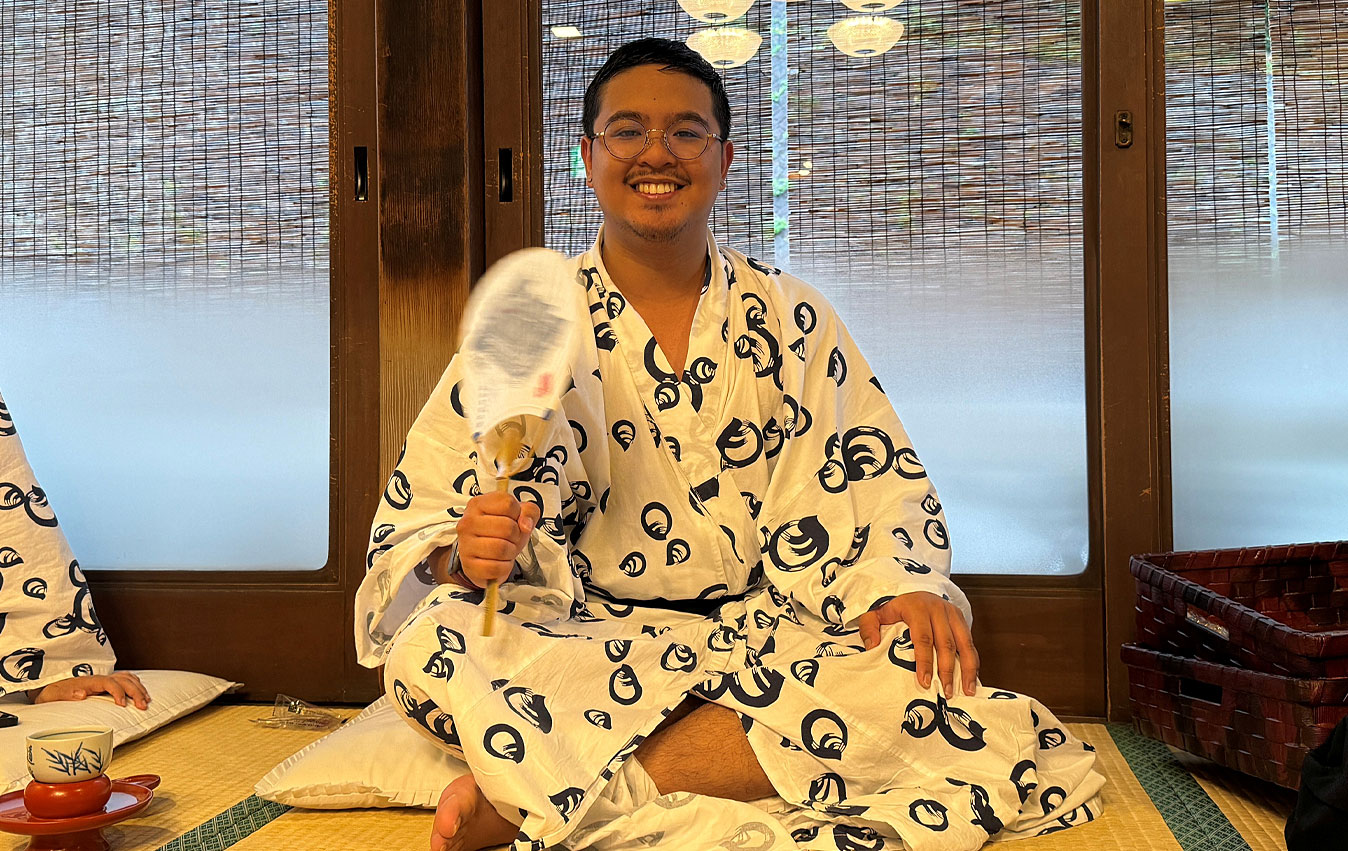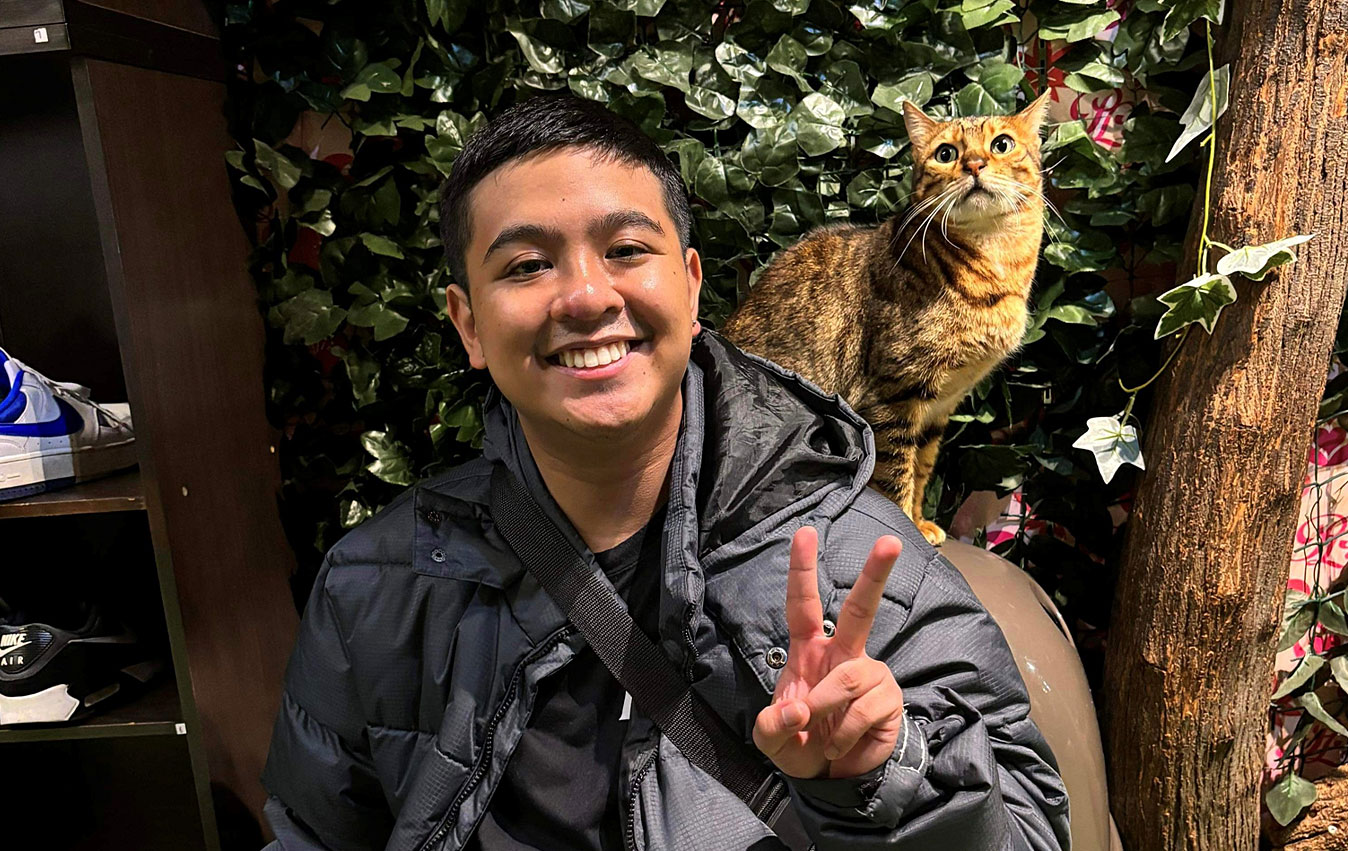MilesHowever, the most fulfilling moment of this fieldwork was when we attended an event where we listened to the testimonies of a hibakusha or atomic bomb survivor. Her testimonies during and after the atomic bombing of Hiroshima were visceral and made the event real rather than merely something that we read in history books. It helped me better visualize the human cost of what we study in international relations, especially since it is a common pitfall to view nation-states from the macro level and as monoliths in our field of study. Most importantly, it made me realize the importance of understanding and empathy in pursuing a course of study like international relations, especially when dealing with such sensitive subject matter as hibakusha.
Could you tell us a few episodes about what impressed you in Japan, Kyoto or Ritsumeikan University?
MilesWhile there have been many things that impressed me when I moved to Kyoto, such as the reliability of public transportation and other public services, I have been most impressed by the diversity and complexity of Japanese society. My perception of Japanese society before moving to Japan was that it was homogeneous with little racial or ethnic diversity. However, I have come to learn and realize that while living in Japan, it is indeed rich in diversity, not only in terms of race or ethnicity, but also in thoughts and ideas.
During my two years at Ritsumeikan University, I met many great individuals both in and out of the classroom from Japan and other countries and cultures that I would not have met otherwise, with whom I developed lasting friendships and professional relationships. I have been able to discuss a wide range of topics with these people, from world politics and history to sports and popular culture. Learning from the experiences and views of people from around the world has helped me diversify my own perspectives on important issues.

You’ve done an internship at the Kyoto Museum for World Peace, Ritsumeikan University. Please share your experience there.
MilesMy internship at the Kyoto Museum for World Peace for the past two semesters has been very transformative for me. My primary duty as an intern at the Kyoto Museum for World Peace was translating the testimonies of people living in the Asia-Pacific region before and during the Pacific War. Reading and translating the testimonies of everyday people from occupied Korea to the Philippines and Taiwan helped me develop a certain consciousness of the shared struggle of oppressed people, not only under imperial powers during the Second World War but also in the present day. In addition to these primary duties, I also helped plan and facilitate different events for students and museum guides at the Peace Museum.
One of these student events included a visit from university students from Hong Kong, which comprised a tour of the Peace Museum and a subsequent peace dialogue on their views of the youth’s role in promoting peace in their communities and around the world. This event further helped me understand the views of other students worldwide and develop a greater appreciation for cross-cultural dialogue. An example of a museum guide event that I enjoyed participating in was the “mono-talk” workshop, where other student staff and I brought an item that holds sentimental value for us. With our identities unknown to them, the museum guides attempted to guess what kind of person owned the item and what meaning it held for them. This workshop helped facilitate openness among the museum guides to understanding the value of artifacts and the vulnerability of expressing the sentimental value of certain items to a group of people.
What are your career intentions or thoughts after graduation?
MilesMy career intentions after graduation are to pursue a master’s degree in Philippine Studies at the University of the Philippines Asian Center. Without a doubt, my experiences learning and conducting research at the American University and Ritsumeikan University have been formative in shaping my career intentions, as I have gained a deeper understanding of the research topics that interest me and developed the methods by which I can conduct research.
I intend to continue my career in academia for several reasons, the most important of which is to contribute to the ever-growing body of knowledge that results from the craft of research. I specifically intend to engage in research on postcolonial studies in the Philippines, analyzing the long-lasting effects of colonialism in the Philippines and Southeast Asia in the present day. While this is a broad topic to research, I hope to utilize the knowledge I gained at American University and Ritsumeikan University on the history and effects of colonialism to refine my research.



AloJapan.com